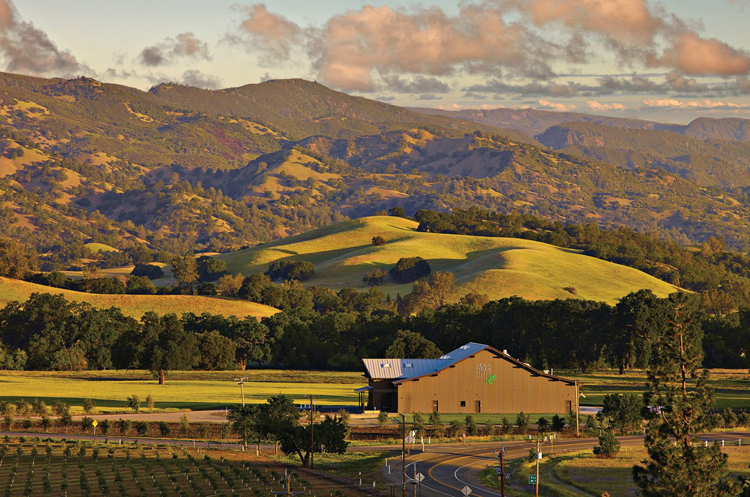The alfalfa fields, ranches and small, organic produce farms of the Capay Valley, located about an hour outside of Sacramento, California, have helped it earn a reputation for being an ideal location for agriculture. The serene setting is also the unlikely home of the Cache Creek Casino, the valley’s most lucrative business.
Run by the Yocha Dehe Wintun Nation of California, the casino sees a lot of traffic and has caused tension between local farmers and the tribe. That source of tension however, is the very reason the Yocha Dehe are able to fund its newest venture located across the rural highway; its own brand of olive oil. Along with the tribe’s olives, approximately 40 of the region’s growers process their own olives at the Yocha Dehe’s state-of-the-art facility using equipment imported from Florence, Italy.
Since former Tribal Chairman Marshall McKay’s visit to the nearby University of California, Davis’ olive center about a decade ago, the Yocha Dehe tribe has advanced to the forefront of the industry. Only in its fifth year of production, the tribe grows, mills and markets its extra-virgin olive oil, which is used in more than 200 restaurants, including the Chez Panisse named best restaurant in America in 2001. Seka Hills, a premium version of the oil, can be found in upscale farmers markets and premium specialty shops.
While the arbequina olives are new in the valley, the Yocha Dehe and other Native American groups are not. McKay says, “People, outsiders came into the valley: Gold Rush prospectors, cattle ranchers, soldiers.” His ancestors fled to the hills, but many were still massacred, according to KTOO. Tribes thrived in villages for thousands of years until European contact.
Growing up in sever poverty and in single parent homes was the norm for the tribe, according to Yocha Dehe tribal secretary, James Kinter. Then in the 1980’s as laws governing Indian gaming began to loosen, the Yocha Dehe opened a bingo hall, and eventually a casino in 1985. The casino now averages 2,000 visitors a day and reportedly earns the tribe hundreds of millions of dollars annually.
While new found wealth for the tribe, the casino and its development has caused concern for some of its neighbors regarding increased traffic on the rural roads and the tribes operating under different regulations than others in the valley. They are also concerned about future casino-related development and the impact it could have on the agricultural character of the valley. However, McKay says that tensions between the tribe and its farming neighbors have eased due to the opening of the olive mill and agricultural work being done by the Yocha Dehe.



